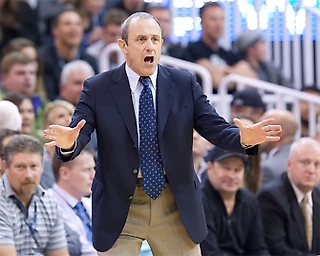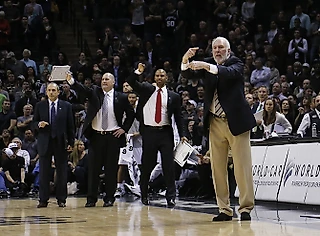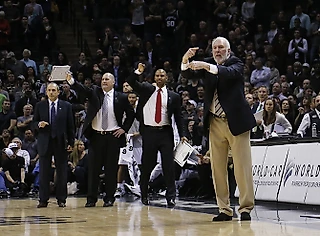Some remarks on NBA basketball
It’s just so good to be back. Good to be in this well-known territory, feel total support from the club, see friendly faces every day and work with my excellent staff preparing for the new season. In terms of organization, working conditions and ability to be involved into strategic planning, I don’t think there’s a better place to be in Europe than CSKA.
I know it’ll be a difficult season, a lot of challenges will emerge as we move forward, but at the same time I have no doubt we’ll be able to meet the necessary standards. At the moment, we’re just getting to know each other – players, coaches, members of the staff. At the same time, I feel a great deal of confidence because I see that there’s a common way of understanding basketball here. Also, it’s very important that our veterans, and especially our captain Viktor Khryapa, show willingness and readiness to lead.
Still, before moving on to talking about CSKA and our preparation for the new season in detail, I’d like to look back one last time and express some of the thoughts related to my stint in the NBA, covering several topics I’m being asked about from time to time.
Sometimes I hear questions about young players and differences between their preparation in Europe and the USA. Well, young players are quite similar all over the world, I think. Even the training techniques are getting more and more similar now that you can exchange information all so easily. Now, what can really make a difference between a more successful career and a less celebrated one is the amount of experience a young player receives growing up.
In America, a player within a good college program under a quality coach will probably receive lots of experience. Europe can counter that with Euroleague – tough, high-pressure competition where number and intensity of games give young players a certain advantage over their American counterparts. There’s a difference between being able to play in about 70 games per year in domestic competitions and Euroleague and having no more than 30 games of college basketball, even if your team advances to the final stages of March Madness.
Aleksey Shved is the latest example of a young guy who benefited from being able to play a considerable number of high-intensity games early in his career.
As for fundamentals, we do emphasize them a lot in Europe. In the USA opinion persists and debates come up about how their players are all about flying, jumping over people, making spectacular plays and in general using their athletic ability, while international players are more fundamentally sound. I think there’s certain truth to it, but at the same time it greatly depends on the school the American player attends early in his career.
In Europe, head coach is often considered a link between the team and the management or in some cases even a part of thereof. In the NBA, head coaches are obviously also involved, just not that deeply. They give, let’s say, technical opinions which are important, naturally, but are just one part of the decision-making process. The reason is, not all decision made there are purely basketball ones. Economy, strategy and salary cap restriction factor greatly as well.
Still, even in Europe a lot depends on the philosophy of the club, philosophy of the owner and level of credibility the coach has reached within the organization. Like, the philosophy of CSKA is to involve you into the strategic process. You’ll be asked to express your opinion and it’ll be valued. On the other hand, there’s a considerable number of clubs here where coaches have little say when it comes to strategies.
The media coverage is what really makes NBA special. The League has succeeded in instilling the sort of mentality in coaches and players where they strictly follow two rules. First of all, every time they connect with media or general public, they are determined to promote the image of the game and of the League, present it in the right spotlight. There’s a strong sense of togetherness and understanding that all of them are parts of the same product, same show. Secondly, everyone – players, coaches, executives – must make themselves available to journalists. There’s no conceivable way to imagine the NBA tolerating somebody refusing to talk to media.




